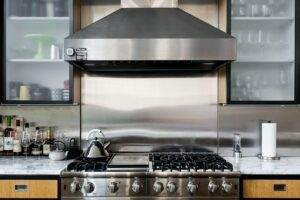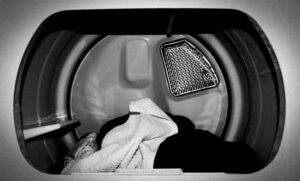Proper tool maintenance is crucial in the field of appliance repair. Without well-maintained tools, technicians may find themselves facing unnecessary challenges and setbacks. This blog post aims to provide a comprehensive guide on how to clean, store, sharpen, lubricate, and prevent rust on appliance repair tools. By following these tips and techniques, technicians can ensure that their tools are always in optimal condition, saving them time and money in the long run.
Table of Contents
- Key Takeaways
- Tips for Cleaning and Storing Your Appliance Repair Tools
- How to Sharpen and Maintain Your Appliance Repair Blades
- Lubrication and Rust Prevention Techniques for Appliance Repair Tools
- Common Mistakes to Avoid When Maintaining Your Appliance Repair Tools
- The Benefits of Regularly Maintaining Your Appliance Repair Tools
- Tools and Equipment Needed for Proper Appliance Repair Tool Maintenance
- How to Extend the Life of Your Appliance Repair Tools
- Final Thoughts on Appliance Repair Tool Maintenance
- What are some essential tips for maintaining tools when repairing appliances?
- FAQs
- What are some common appliance repair tools?
- How often should I clean my appliance repair tools?
- What is the best way to store appliance repair tools?
- How can I prevent rust on my appliance repair tools?
- What should I do if my appliance repair tool breaks?
- How can I extend the life of my appliance repair tools?
Key Takeaways
- Proper tool maintenance is crucial for effective appliance repair.
- Regular cleaning and storage can prevent damage and prolong tool life.
- Sharpening and lubrication techniques can improve tool performance.
- Avoid common mistakes like using the wrong cleaning products or over-tightening screws.
- Regular maintenance can save time and money in the long run.
The Importance of Maintaining Your Appliance Repair Tools
Maintaining your appliance repair tools offers numerous benefits. Firstly, well-maintained tools are more efficient and effective in getting the job done. Clean and sharp tools allow technicians to work with precision and accuracy, reducing the risk of mistakes or damage to appliances. Additionally, properly maintained tools are less likely to break or malfunction during use, minimizing downtime and the need for costly repairs or replacements.
Proper tool maintenance also saves time and money. When tools are well-maintained, technicians can work more efficiently, completing jobs faster and increasing their productivity. This not only allows them to serve more customers but also reduces labor costs. Furthermore, regular maintenance helps extend the lifespan of tools, reducing the frequency of replacements and saving money in the long term.
Tips for Cleaning and Storing Your Appliance Repair Tools
Cleaning your appliance repair tools is an essential part of maintenance. Start by removing any debris or dirt from the tools using a brush or compressed air. For stubborn dirt or grease, use a mild detergent or degreaser and a cloth to wipe down the surfaces. Be sure to dry the tools thoroughly before storing them to prevent rust.
Storing your tools properly is equally important. Avoid leaving them exposed to moisture or extreme temperatures as this can lead to rust or damage. Instead, store them in a clean and dry toolbox or cabinet. Consider using foam inserts or tool organizers to keep your tools organized and protected. It is also a good idea to label your tools to easily identify them and prevent mix-ups.
How to Sharpen and Maintain Your Appliance Repair Blades
Sharp blades are essential for appliance repair tasks as they ensure clean and precise cuts. To sharpen your blades, start by cleaning them thoroughly to remove any debris or residue. Then, use a sharpening stone or file to sharpen the edges. Hold the blade at a consistent angle and apply even pressure as you move the stone or file along the edge. Repeat this process until the blade is sharp.
Regular maintenance of your blades is also important to keep them in optimal condition. After each use, clean the blades and remove any debris or residue. Apply a thin layer of lubricant to prevent rust and keep the blades moving smoothly. Additionally, inspect the blades regularly for any signs of wear or damage and replace them if necessary.
Lubrication and Rust Prevention Techniques for Appliance Repair Tools
Lubrication is crucial for keeping your appliance repair tools in good working condition. Apply a few drops of lubricant to moving parts such as hinges, joints, or gears. This helps reduce friction and wear, ensuring smooth operation and prolonging the lifespan of your tools. Be sure to use a lubricant that is specifically designed for tools and machinery.
Rust prevention is equally important, especially for tools that are exposed to moisture or stored in humid environments. To prevent rust, apply a rust inhibitor or rust-preventive spray to the surfaces of your tools. This creates a protective barrier that prevents moisture from reaching the metal and causing corrosion. Regularly inspect your tools for any signs of rust and address it immediately to prevent further damage.
Common Mistakes to Avoid When Maintaining Your Appliance Repair Tools
While proper tool maintenance is essential, there are common mistakes that technicians should avoid to prevent damage to their tools. One common mistake is using the wrong cleaning agents or abrasive materials that can scratch or damage the surfaces of the tools. Always use mild detergents and non-abrasive materials when cleaning your tools.
Another mistake is neglecting to dry the tools thoroughly after cleaning. Moisture can lead to rust and corrosion, so it is important to ensure that your tools are completely dry before storing them. Additionally, avoid using excessive force or pressure when sharpening blades as this can cause them to become uneven or damaged.
The Benefits of Regularly Maintaining Your Appliance Repair Tools
Regular maintenance of your appliance repair tools offers numerous long-term benefits. Firstly, it improves the lifespan of your tools, reducing the need for frequent replacements and saving you money. Well-maintained tools also increase your efficiency and productivity, allowing you to complete jobs faster and serve more customers. This can lead to increased customer satisfaction and repeat business.
Furthermore, regular maintenance reduces the risk of accidents or mistakes during appliance repair tasks. Clean and sharp tools ensure precision and accuracy, minimizing the chances of damage to appliances or injuries to technicians. By investing time and effort into maintaining your tools, you are investing in the success and longevity of your appliance repair business.
Tools and Equipment Needed for Proper Appliance Repair Tool Maintenance
To properly maintain your appliance repair tools, you will need a few essential tools and equipment. These include:
1. Brushes or compressed air: for removing debris or dirt from the tools.
2. Mild detergent or degreaser: for cleaning stubborn dirt or grease.
3. Cloths: for wiping down the surfaces of the tools.
4. Sharpening stone or file: for sharpening blades.
5. Lubricant: for lubricating moving parts.
6. Rust inhibitor or rust-preventive spray: for preventing rust.
Each tool serves a specific purpose in maintaining your appliance repair tools, so it is important to have them on hand to ensure proper maintenance.
How to Extend the Life of Your Appliance Repair Tools
To extend the lifespan of your appliance repair tools, follow these tips:
1. Clean your tools after each use to remove debris or residue.
2. Store your tools in a clean and dry environment to prevent rust or damage.
3. Sharpen your blades regularly to ensure clean and precise cuts.
4. Lubricate moving parts to reduce friction and wear.
5. Inspect your tools regularly for signs of wear or damage and address them immediately.
6. Use the right tools for the job to prevent unnecessary strain or damage.
By following these tips and properly caring for your tools, you can significantly extend their lifespan and maximize their performance.
Final Thoughts on Appliance Repair Tool Maintenance
Proper tool maintenance is essential in the field of appliance repair. By regularly cleaning, storing, sharpening, lubricating, and preventing rust on your tools, you can ensure that they are always in optimal condition. This not only saves you time and money but also improves your efficiency and productivity as a technician. Invest in the longevity of your tools by following these maintenance tips and techniques, and enjoy the benefits of well-maintained tools in your appliance repair business.
What are some essential tips for maintaining tools when repairing appliances?
When repairing appliances, it’s crucial to maintain your tools properly. To ensure their longevity and efficiency, always clean and store your basic toolkit for appliance repair in a dry, organized place. Additionally, keep an eye on the condition of your tools and replace any worn or damaged ones promptly. Investing in quality tools can significantly enhance your repair capabilities and efficiency. Furthermore, utilizing appliance repair troubleshooting software can help diagnose issues more effectively, allowing you to pinpoint problems quickly. This combination of well-maintained tools and advanced software will lead to more successful repairs and satisfied customers.
FAQs
What are some common appliance repair tools?
Some common appliance repair tools include screwdrivers, pliers, wrenches, multimeters, and nut drivers. In addition to these basic tools, having specialized equipment like a heat gun or an air compressor can greatly enhance your repair efficiency. When tackling various issues, it’s crucial to have a well-rounded toolkit that contains these essential tools for appliance repair, ensuring you’re prepared for any situation that may arise. Proper maintenance and quick repairs can save you both time and money in the long run. Additionally, investing in a reliable toolset that emphasizes the importance of basic tools for appliance repair will allow you to address a wide range of problems effectively. Regularly updating your toolkit can ensure you are always equipped with the latest tools needed for modern appliances. Ultimately, having the right combination of basic and specialized tools can make all the difference in achieving successful repairs.
How often should I clean my appliance repair tools?
You should clean your appliance repair tools after each use to prevent dirt and debris from building up and causing damage.
What is the best way to store appliance repair tools?
The best way to store appliance repair tools is in a dry, cool place where they won’t be exposed to moisture or extreme temperatures. A tool box or tool bag is a good option.
How can I prevent rust on my appliance repair tools?
To prevent rust on your appliance repair tools, make sure to dry them thoroughly after cleaning and store them in a dry place. You can also apply a rust inhibitor or oil to the metal parts.
What should I do if my appliance repair tool breaks?
If your appliance repair tool breaks, you should stop using it immediately and either repair or replace it. Continuing to use a broken tool can cause further damage or injury.
How can I extend the life of my appliance repair tools?
To extend the life of your appliance repair tools, make sure to clean and maintain them regularly, store them properly, and use them only for their intended purpose. Avoid using excessive force or using the wrong tool for the job.



